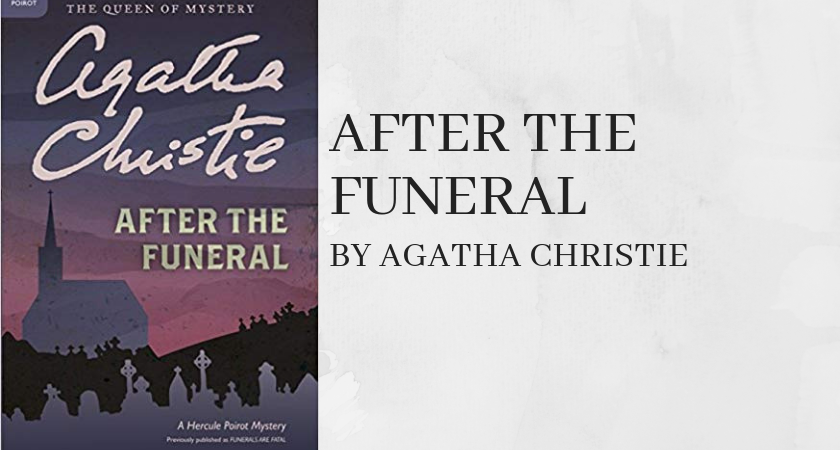I went to the library looking for more Miss Marple, but I couldn’t resist a Poirot mystery that I haven’t read. In After the Funeral, Hercule Poirot is pulled into a mystery – possibly a serial murder mystery. Richard Lansquenet dies, of natural causes, it’s presumed. But at his funeral, his long-estranged sister, Cora, remarks that “he was murdered, wasn’t he?”
The next day, Cora is found murdered.
The family solicitor, Mr. Entwhistle is worried. He hasn’t seen Cora in years, but he remembers her habit of making uncomfortably truthful remarks. And if Cora has been murdered, doesn’t that mean that Richard was too? Thankfully, he’s friends with Hercule Poirot, who he pulls in to help solve the mystery.
Poirot is working mostly alone in this mystery. There’s no Hastings or sidekick unless you count Entwhistle, who’s mostly absent once Poirot is involved. Still, Poirot manages to get around and gather information, which goes to show that he doesn’t need to just sit in a room and use his little grey cells.
Obviously, I really enjoyed this mystery. There was even a rare reference to another Poirot mystery – Lord Edgeware dies. Since I’ve read that one too, it came as a pleasant surprise.
As with many Poirot novels, there’s a large and dysfunctional family here. My favourite characters were Susan and Rosamund, both belonging to the younger generation and both considered beautiful in their own way. They couldn’t be more different – Susan is savvy while Rosamund can be described as airheaded, but they’re more alike than they think. It’s pretty interesting to see how they react to things as the novel progresses. Susan and Rosamund are both married. From the older generation, there are the usual suspects. Timothy, the hypochondriac uncle was annoying, but the two older ladies didn’t really stand out. I think the younger generation was more interesting than the older ones.
There are also a few tasteless remarks about the ‘lower classes’, mostly from Timothy. While I’m mostly fond of Christie’s characters, who belong to a different age and society, remarks like this remind me that change is also good.
Overall, I really enjoyed this (as I do all Christie novels). Poirot seems to be very willing to admit when he was wrong, mostly in regard to the Edgeware case, and he makes deductions that seem obvious in retrospect. Definitely recommended for fans of Golden Age mystery.
